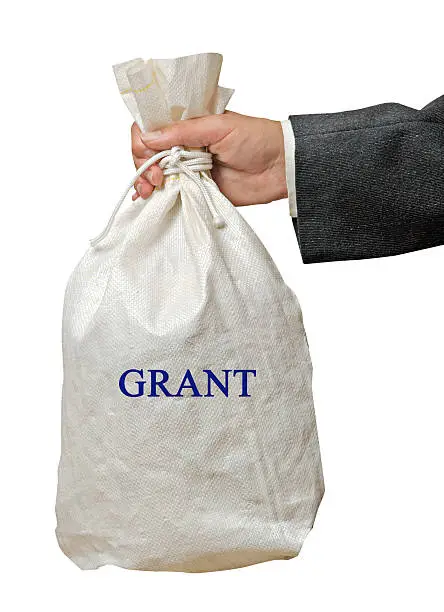Need to take better care of your teeth but don’t have the cash? Applying for Government Grants for Dental Work might be the solution you need. Government subsidies are an excellent way to help those who are struggling financially get the dental treatment they require. To boost your chances of securing dental treatment funding, we’ll explore eligibility requirements, available resources, and helpful tips in this guide.
Dental treatment is accessible through various channels, including municipal and state programs, nonprofits, charitable dental organizations, dental schools, and clinics.
Eligibility for Government Grants for Dental Work
Understanding the eligibility criteria for Government Grants for Dental Work is crucial for applicants seeking financial assistance. Different programs have varying requirements, but there are common factors that most applicants need to meet. This section provides a detailed overview of these factors, helping you determine your eligibility for dental grants.
Income
Income is a primary factor in determining eligibility for many government grants aimed at dental work. Most programs prioritize low-income individuals and families, often using the federal poverty line (FPL) as a benchmark. For example, programs may require applicants to have an income that is at or below 200% of the FPL. It is essential to check the specific income requirements for each program, as they can vary significantly. Providing accurate income documentation, such as pay stubs, tax returns, or Social Security benefit statements, is usually required.
Residency
Residency requirements are another critical factor in determining eligibility for dental grants. Applicants typically need to be permanent residents of the state, county, or city offering the program. This means providing proof of residency, such as a driver’s license, utility bill, or lease agreement. Some programs might also require applicants to have lived in the area for a certain period, such as six months or a year, before applying.
Age
Many dental grant programs target specific age groups to address the unique dental needs of these populations. For instance, children and adolescents often qualify for programs aimed at preventive and restorative dental care, while seniors might be eligible for programs that focus on dentures or other age-related dental issues. Pregnant women and individuals with disabilities are also common target groups. Age-specific documentation, such as birth certificates for children or Medicare cards for seniors, may be required.
Dental Need
The nature and extent of the dental need are significant factors in determining eligibility. Programs often prioritize applicants with urgent or severe dental issues, such as those requiring emergency care, major restorative work, or treatment for chronic conditions that affect oral health. Applicants may need to provide detailed information about their dental condition, including diagnoses, treatment plans from a dental professional, and any supporting medical records.
Citizenship
Proof of citizenship or legal residency is commonly required for applicants seeking government grants for dental work. This requirement ensures that the benefits are provided to individuals who are legally entitled to receive them. Acceptable documentation may include a U.S. passport, birth certificate, naturalization papers, or a green card. Some programs may also accept documentation proving legal status for non-citizens, such as work visas or asylum status.
Determining Eligibility:
- Contact Relevant Programs: Reach out to the specific program to understand their requirements.
- State and Municipal Government Websites: Health or human services departments often provide details on local programs.
- Non-Profit Organizations: Eligibility requirements are usually available on their websites or by contacting them directly.
Resources for Applying for Government Grants for Dental Work
Here are some resources that can help you secure Government Grants for Dental Work.
State and Local Programs
State and local programs offer substantial financial aid for essential dental procedures. These subsidies help individuals who cannot afford dental care. Through collaborations with dental clinics or specialists, some programs may offer reduced-cost or even free dental treatments.
Eligibility for State and Local Programs:
- Income Levels: Preference is often given to lower-income families and individuals.
- Residency Requirements: Applicants must typically be residents of the relevant state or locality.
- Age Requirements: Specific programs may target the elderly or children.
- Dental Care Needs: Programs may focus on preventive treatments or emergency care.
- Supporting Documents: Proof of income and residency is usually required.
Dental Schools and Clinics
Dental schools and clinics often help individuals apply for government dental grants. These organizations provide affordable dental care through sliding scale fees, discounted services, or pro bono treatments.
Eligibility for Dental Schools and Clinics:
- Financial Need: Applicants must show financial need with income below a certain level.
- Target Populations: Programs may target underserved dental patients.
- Citizenship: Some programs require applicants to be citizens.
- Dental Care Needs: Programs may prioritize those with urgent dental needs.
- Supporting Documents: Proof of income, residence, and dental treatment requirements may be needed.
Non-Profit Organizations
Non-profits can also help you locate affordable dental treatment through various programs. Here are a few notable ones:
Smiles Change Lives
Helps children and teenagers who need braces but can’t afford them.
Eligibility for Smiles Change Lives:
- Financial Assistance for Braces: For children and teens.
- Proof of Financial Necessity: Income requirements must be met.
- Commitment to Dental Health: Applicants should be willing to adhere to their orthodontic treatment plans.
Access to Care
A program by the American Academy of Pediatric Dentistry that provides dental care for underprivileged children.
Eligibility for Access to Care:
- Financial Difficulties: Assistance for uninsured or financially struggling individuals.
- Specific Criteria: Age, income, and insurance participation may affect eligibility.
Charitable Dental Organizations
Organizations like Henry Schein Cares and the American Dental Association Foundation provide free dental care to those in need through various programs.
How to Complete the Application Process for Government Grants for Dental Work
Steps to Apply:
- Research Eligibility: Check program criteria.
- Gather Necessary Documents: Collect proof of income, residency, identification, and dental needs.
- Complete the Application: Fill out the grant application thoroughly.
- Submit Supporting Documents: Include all required documents.
- Review and Confirm: Ensure accuracy and completeness.
- Submit the Application: Follow the program’s submission guidelines.
- Follow Up: Check the status of your application.
- Stay Informed: Keep up with updates on your application.
Tips for Maximizing Approval Chances
- Meet All Eligibility Criteria: Ensure you qualify before applying.
- Collect All Required Paperwork: Provide necessary documentation.
- Demonstrate Genuine Need: Explain your financial difficulties clearly.
- Follow Application Directions: Fill out the application accurately and submit on time.
- Seek Additional Help: Social workers and non-profits may assist in the application process.
Conclusion
Applying for Government Grants for Dental Work can provide much-needed oral healthcare for financially disadvantaged individuals. Understanding eligibility requirements, organizing supporting documents, and applying precisely can improve your chances of receiving aid. By exploring resources from charitable dental organizations, non-profits, dental schools, and state and municipal programs, individuals can better their oral and general health. Stay informed, be proactive, and never give up on securing government funding for dental care.
Frequently Asked Questions
How do I know if I qualify for government grants for dental work?
Eligibility criteria vary by program, but common factors include income, residency status, age, dental need, and citizenship. Contact the specific program for detailed requirements.
Are there any costs associated with applying for government grants for dental work?
Typically, there are no fees for applying. However, there may be minor costs for supplying supporting documents, such as copying or mailing fees.
What if I don’t qualify for government grants for dental work? Are there other options available?
Yes, you can explore charitable organizations, low-cost or sliding-scale dental clinics, dental finance solutions, or payment arrangements with dental professionals.
Recommended Books for Enhancing Grant Writing Skills
Here are a few recommended books:
- Advanced Grant Writing for Nonprofits : Focuses on sophisticated techniques for experienced grant writers. It delves into complex aspects of proposal development, offering strategies for dealing with competitive grant environments and large funding bodies.
- Crafting Nonprofit Annual Reports that Captivate: Strategies, Tools, and Examples for Success: This book offers a comprehensive guide for nonprofit organizations aiming to create impactful annual reports. It covers effective strategies, essential tools, and real-world examples to help organizations narrate their achievements and challenges compellingly. The guide emphasizes storytelling, visual communication, and stakeholder engagement, ensuring readers can produce reports that not only fulfill compliance requirements but also captivate and inspire donors, volunteers, and the community at large.
- The Ultimate Guide to Federal Grant Applications: Techniques for Success: Navigating the complexities of federal grant applications can be daunting for many nonprofits. This essential guide demystifies the process, offering step-by-step techniques for success. It covers everything from understanding eligibility criteria to crafting persuasive proposals, managing submissions, and complying with reporting requirements. The book is designed to help nonprofit professionals maximize their chances of securing federal funding by providing practical tips, checklists, and examples of successful applications.
- Nonprofit Strategic Planning : Strategic planning is crucial for the growth and sustainability of any nonprofit organization. This book serves as an invaluable resource for leaders and managers looking to develop and implement effective strategic plans. It covers the fundamentals of strategic planning, including goal setting, environmental scanning, strategy formulation, implementation, and evaluation. Through practical advice, tools, and case studies, readers will learn how to align their organization’s mission with its strategic goals, ensuring long-term success and impact.
- Mastering Grant Writing: A Nonprofit’s Guide to Effective Proposal Development and Submission: This book serves as a comprehensive guide, covering the entire process of grant writing. It includes tips on understanding funders’ perspectives, crafting compelling narratives, and the nuances of proposal submission.
- Becoming the Grant Guru: Freelancer’s Guide to Success : Tailored for freelance grant writers, this book provides insights into building a successful career in grant writing. It includes strategies for finding clients, managing projects, and maximizing the impact of grant proposals.
- The Small Business’s Guide to Winning Grants : This resource is particularly useful for small businesses looking to secure grants. It offers practical advice on identifying suitable grant opportunities, understanding the requirements of small business grants, and crafting winning proposals.
- Grant Readiness Guide: Preparing to Triumph in Funding Opportunities : A comprehensive resource for organizations at various stages of grant preparedness. It provides a roadmap for developing organizational capacity, aligning projects with funders’ goals, and creating compelling applications.
- Her Capital: Unlocking Women’s Small Business Grants: Specifically designed for women entrepreneurs, this book offers guidance on navigating the landscape of small business grants for women. It includes insights into grant sources, application strategies, and tips for leveraging grants to grow a business.




